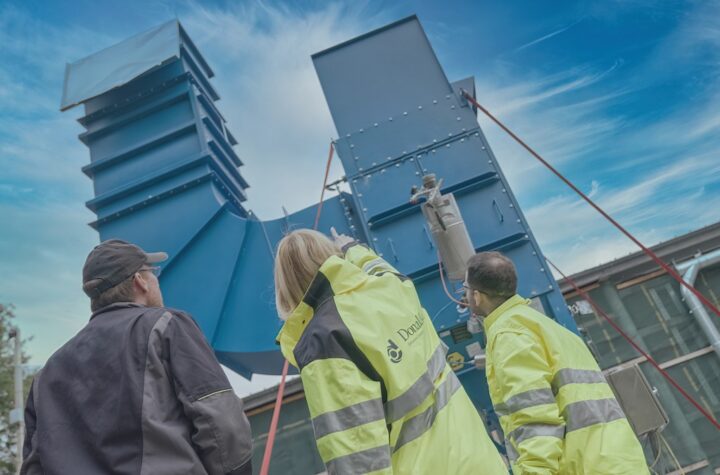 |
| “How well you do is about personal achievement and capabilities, not gender.” — Rosalinda Torres. |
Women have been working their way to the top of the country’s auto supply industry — proof that the traditional image of a macho Mexican society is changing. Some plants have a workforce that is more than 80 percent female. Those who have scaled the heights, some of them against all odds, have become a model and mentor for others.
Delphi Corp., which has 58 plants in Mexico making it the second largest private company in the country, has been keen to champion the role of women in the workplace — and this has been recognized at the highest level, by Mexico president Vincente Fox, who visited the Delphi RIMIR plant run by Rosalinda Torres in Matamoros.
President Fox visited the plant to announce the signing of an agreement between unions and employers to improve working conditions for women throughout Mexico. “How well you do is about personal achievement and capabilities, not gender,” Rosie, as she is affectionately known at the plant, explains.
“In the past, pregnancy and work did not go together and a woman could lose her job. If a woman is pregnant, it should not be a problem. You just need to plan for it. That woman should always be able to come back and continue her career,” Torres says.
The RIMIR workforce is 43 percent female with an average age of 23. “Many of these women are bound to get pregnant and it’s not a reason to lose good employees. President Fox said he was going to push for every other company in Mexico to follow our lead,” she adds.
Torres joined Delphi as a paint process engineer in October 1980. Now the RIMIR plant she runs in Matamorpos, close to the U.S. border, is one of the most successful factories in the city.
When she started she was one of only five women in a team of 40 engineers. Her career took her through quality control, training, production and five years in human resources with responsibility for safety and training. Then, in 1994, she returned to the sharp end of the business as production manager when RIMIR changed from producing fascias and trim to airbags and seatbelts. “We had a new contract and were starting from zero,” Torres says.
Torres, 44, was promoted to operations manager then in August 2000 became plant manager. She achieved all this while raising a family, including two sons.
In Mexico, the government and social security provide nursery facilities. “We definitely need more of them with more Moms on the job,” says Rosie.
Her husband Juan Manuel, whom she married 26 years ago, also works for Delphi as a quality engineer. Torres joined the company six weeks after her husband.
“When I became the boss he was transferred so there would be no problems,” she recalls. Now she admits modestly she has become an inspiration for other women who often come to her for advice and tell her that if she could do it, so can they.
“I hope I can be an example to other women,” Torres says. “The conditions are now right for women to continue to move into higher positions and here in RIMIR about 30 percent of our managers are women. They can’t use the excuse that being a woman is stopping them.”
First Woman Engineer
In 1980, Irene Arrieta made history. She was the first woman Delphi hired as an engineer. She received her engineering degree at Monterrey Technical Institute in Juarez and stayed in the city for her first Delphi position. “I had always wanted to be an engineer, I enjoyed math and physics so much,” says the 43-year-old mother of two.
She spent two years working in production before moving to the industrial engineering department. Next, she headed to human resources and became involved in personnel training. Her supervisors then picked her as one of six engineers chosen as part of a fasttrack promotion system. There she spent four years in engineering development and eventually was placed in charge of production control and logistics for nine plants in Mexico.
Now she is assigned as one of two operations managers for Delphi Energy & Chassis Systems in Mexico. She is in charge of four plants.
Throughout her career she has worked with men, but she dismisses any thought that there were problems being a woman in a position of authority.
“I have a strong character so I don’t see women leading men as a problem,” she says. “I was honestly never aware of any resentment or concern. You should ask the men who worked with me.”
But she admits that then, as now, women had to be better than men to be promoted. Of her own success she says that she wasn’t really concerned about getting promoted: “I was just doing my best in whatever I was doing.”
Her philosophy is to work very closely with employees and spend a lot of time on the shop floor. “If you spend time with them they will tell you everything, any problem they might have.” She says this close relationship makes discovering and solving problems a quick and easy process.














































 Kobes Beef
Kobes Beef


